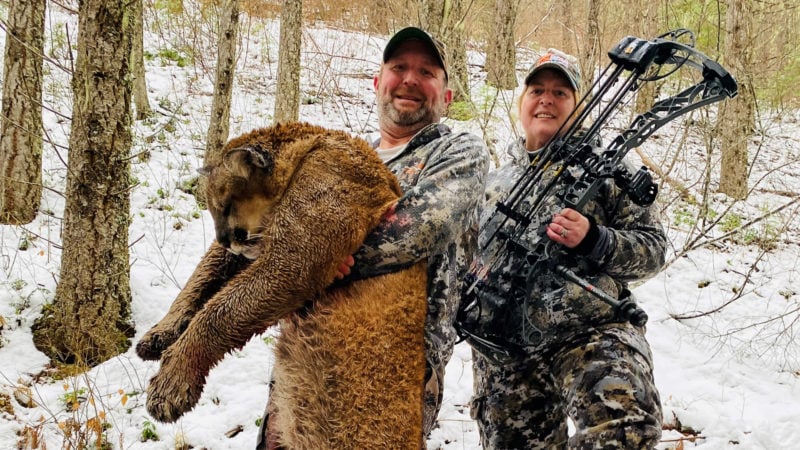Look closely at anti-hunting groups and you’ll find they are some of the craftiest and sneakiest folks on earth. They are incredibly smart people. Just not when it comes to the proper care and conservation for the wildlife across the country. They are blind to the good that hunters and hunting do for the furtherance of the wild critters across the landscape. They simply see the issue as hunters vs. wildlife. So in their mind, hunting is bad.

For that reason, they go to great lengths to put a stop to hunting. Many have made the attack on hunters their life mission. They want hunting stopped, no matter what it takes. But again, they’re slick. They don’t start at the top. They won’t come out swinging against deer hunting rights. Rather, they’ll chip away at the low-hanging fruit. They’ve been diligently working on the ban of bears and mountain lions for decades. And regardless of whether you hunt or live anywhere near a bear or mountain lion, now is a great time to get proactive in the fight against those who are working toward the ban on hunting opportunities.
Make no mistake, these groups will not stop with the ban on lion hunting. That’ll simply be their foot in the door. They will then begin their work on the next species to ban. It’s happened across the country and is currently on the table in the state of Colorado.
The Rocky Mountain Elk Foundation recently held a press conference at the 2024 SHOT Show to discuss what’s currently taking place in Colorado. The focus was on a 2024 anti-hunting citizen ballot initiative in Colorado that would ban the management of mountain lions, bobcats and lynx.
Their recent release states that out-of-state interests, including environmental groups and animal rights activists worked hard to push their wolf agenda on the ballot to forcibly introduce wolves into Colorado. RMEF was heavily involved and spent more than $300,000, including the creation of TV and radio spots and other outreach, to try to defeat the effort. It passed by less than one percent of the vote.
“Anti-hunting interests have been emboldened by that victory,” said Ryan Bronson, RMEF director of government affairs. “In 2022, they attempted to ban mountain lion hunting at the legislature, but a groundswell of sportsmen organized and were able to defeat that bill.”

Now, supporters of this new initiative have until July 5 to gather 124,238 verified signatures. If successful, the initiative will appear on the November 2024 ballot.
“These attacks on scientific wildlife management are dangerous. Ballot initiatives and the ballot box biology that they bring reduce complex ecological systems to soundbites and pleas to emotion,” added Bronson. “Today, they are trying to ban cat hunting in Colorado, but this is only a step toward eliminating all hunting and trapping.”
Proponents claim hunting and trapping mountain lions and bobcats increases the risk of human-lion conflict, yet CPW reports in-state hunting-trapping harvest data over the last four years shows no evidence of elevated levels of human-mountain lion incidents where hunting takes place.
“Very few places in Colorado have high harvest levels, but our human-lion incidents data doesn’t show more conflicts in areas of harvest. In fact, some of our higher conflict areas (Glenwood/Roaring Fork, Durango, Front Range) have relatively low harvest,” according to CPW’s FAQ.
Based on years of successful management thanks to highly regulated hunting and trapping seasons, CPW also points out neither of the species are biologically threatened and “managing lions and bobcats with harvest is a tool to maintain more stable populations compared to more widely fluctuating populations that would likely occur without hunting.”
RMEF maintains that state agencies, such as CPW, manage wildlife in line North American Wildlife Conservation Model’s main principles that wildlife belong to all Americans and need to be managed so their populations will be sustained forever.
What are your thoughts on the push for this ban? Comment below, and let us know.

 By
By 



